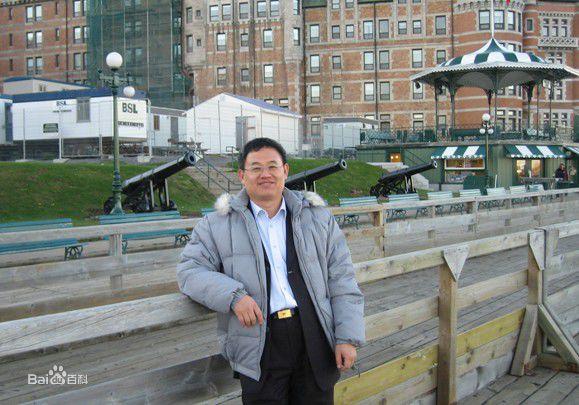個人經歷
 鄭利民教授
鄭利民教授1984年畢業於上海醫科大學,並在附屬華山醫院任臨床醫生。1988年獲上海醫科大學附屬華山醫院臨床醫學碩士。
1990年赴荷蘭萊頓大學(Leiden University)醫學院學習,並於1994年獲免疫學博士學位,隨後在瑞典林雪平大學(Linköping University)醫學院和隆德大學(Lund University)Malmo總醫院做博士後。
1999年獲瑞典國家研究院傑出人才基金(助理教授)而在瑞典建立了獨立實驗室。
2002年作為“百人計畫引進人才”被聘為中山大學教授,博士生導師。
2004年獲國家傑出青年科學基金, 並擔任科技部“973計畫”課題組組長。2005年獲國務院政府特殊津貼。
2008年被聘為教育部“長江學者”特聘教授。
2011年教育部全國優秀博士學位論文評選獲得優秀博士學位論文(導師)。
2013年獲得教育部高等學校科學研究優秀成果獎——自然科學獎一等獎。
2014年度獲得國家自然科學獎二等獎。
2014年起,擔任國務院學位委員會學科評議組成員。
現任中山大學生命科學學院院長,中山大學附屬腫瘤醫院生物治療中心主任導師。
研究方向
近十餘年來一直從事於調控人免疫細胞信號通路的研究。主要研究方向為:組織免疫微環境;巨噬細胞生物學;腫瘤分子分型和免疫治療。
以臨床樣本為基礎,結合實驗模型,主要開展以下三個方面的工作:
以單核巨噬細胞和MDSC等髓系細胞為核心,系統研究腫瘤對這些髓系細胞產生,以及它們在組織中的集聚、分化/表型的影響與調控機制,以及免疫微環境對腫瘤血管生成和轉移的影響與機制。
腫瘤細胞的表觀遺傳調控以及組織局部代謝對浸潤免疫細胞亞群、功能與表型的調控機制及其臨床意義。
綜合評價肝癌組織免疫狀態對疾病轉歸和治療應答的影響;建立可用於臨床判斷肝癌進展/預後的預測模型;探討個體化免疫干預的可行性。
1.以單核巨噬細胞和MDSC等髓系細胞為核心,系統研究腫瘤對這些髓系細胞產生,以及它們在組織中的集聚、分化/表型的影響與調控機制,以及免疫微環境對腫瘤血管生成和轉移的影響與機制。
2.腫瘤細胞的表觀遺傳調控以及組織局部代謝對浸潤免疫細胞亞群、功能與表型的調控機制及其臨床意義。
3.綜合評價肝癌組織免疫狀態對疾病轉歸和治療應答的影響;建立可用於臨床判斷肝癌進展/預後的預測模型;探討個體化免疫干預的可行性。
研究成果
1. 人實體瘤可利用免疫細胞在組織中遷移分化的時空特性,來對其進行“動態教育”;使免疫細胞在腫瘤的不同區域呈現出獨特的分布和表型。
2. 除了人們熟悉的免疫抑制之外,腫瘤還可通過誘導免疫細胞的短暫預活化來產生免疫耐受,並將局部的炎症反應“化劍(抗腫瘤免疫)為犁(血管生成和組織重塑)”,最終促進腫瘤生長。
這些結果不僅有助於我們以新的思路(免疫活化)來理解腫瘤免疫編輯的機制,還可為將選擇性調控“炎症反應內容”發展成為新型臨床干預手段奠定理論基礎。
代表性論文
L Zhao, Y Wu, XD Xie, YF Chu, JQ Li, and L Zheng. c-Met identifies a population of matrix metalloproteinase 9-producing monocytes in peritumoral stroma of Hepatocellular carcinoma. J. Pathol. 2015,DOI: 10.1002/path.4578.
XF Li, DP Chen, FZ Ouyang, MM Chen, Y Wu, DM Kuang, and L Zheng. Increased autophagy sustains the survival and pro-tumourigenic effects of neutrophils in human hepatocellular carcinoma. J. Hepatol.2015, 62:131-9.
DM Kuang, X Xiao, Q Zhao, MM Chen, XF Li, RX Liu, Y Wei, FZ Ouyang, DP Chen, Y Wu, XM Lao, H Deng and L Zheng.B7-H1–expressing antigen-presenting cells mediate polarization of protumorigenic Th22 subsets. J. Clin. Invest. 2014,124(10):4657–4667.
WC Wu, HW Sun, HT Chen, J Liang, XJ Yu, C Wu, Z Wang, and L Zheng. Circulating hematopoietic stem and progenitor cells are myeloid-biased in cancer patients. Proc. Natl. Acad. Sci. USA. 2014, 111: 4221-6.
Y Wu, DM Kuang, WD Pan, YL Wan, XM Lao, D Wang, XF Li, L Zheng. Monocyte /Macrophage-elicited NK cell dysfunction in Hepatocellular carcinoma is mediated by CD48/2B4 interactions. Hepatology , 2013, 57:1107-16.
J Xu, T Ding, Q He, X Yu, W Wu, W Jia, J Yun, Y Zhang, M Shi, C Shao, WD Pan, X Yin, J Min, SM Zhuang and L Zheng. In Situ molecular signature predict early recurrence in Hepatitis B virus-related hepatocellular carcinoma. J. Hepatol. 2012, 57:313-21.
Q Zhao, DM Kuang, Y Wu, X Xiao, X Li, T Li, and L Zheng. Activated CD69+ T cells foster immune privilege by regulating IDO expression in tumor-associated macrophages. J. Immunol. 2012, 188;1117-24.
DM Kuang, Q Zhao, Y Wu, C Peng, J Wang, Z Xu, XY Yin, and L Zheng. Peritumoral neutrophils link inflammatory response to disease progression by fostering angiogenesis in hepatocellular carcinoma. J. Hepatol. 2011, 54:948–55.
T Ding, J Xu, Y Zhang, R Guo, W Wu, S Zhang, CN Qian, and L Zheng*. Endothelium coated tumor clusters are associated with poor prognosis and micrometastasis of hepatocellular carcinoma after resection. Cancer. 2011, 117:4878-89.
DM Kuang, C Peng, Q Zhao, Y Wu, LY Zhu, J Wang, XY Yin, and L Zheng. Tumor-activated monocytes promote expansion of IL-17-producing CD8+ T cells in hepatocellular carcinoma patients. J. Immunol. 2010, 185:1544-9.
DM Kuang, C Peng, Q Zhao, Y Wu, MS Chen, and L Zheng. Activated monocytes in peritumoral stroma of hepatocellular carcinoma promote expansion of memory Th17 cells. Hepatology. 2010, 51:154-64.
DM Kuang, QY Zhao, C Peng, J Xu, JP Zhang, C Wu, and L Zheng. Activated monocytes in peritumoral stroma of hepatocellular carcinoma foster immune privilege and disease progression through PD-L1. J. Exp. Med. 2009, 206: 1327-37.
JP Zhang, J Yan, J Xu, XH Pang, MS Chen, L Li, C Wu, SP Li, and L Zheng. Increased intratumoral IL-17-producing cells correlate with poor survival in hepatocellular carcinoma patients. J. Hepatol. 2009, 50:980-9.
DM Kuang, Y Wu, N Chen, J Cheng, SM Zhuang, and L Zheng. Tumor-derived hyaluronan induces formation of immunosuppressive macrophages through transient early activation of monocytes. Blood. 2007, 110:587-95.
![鄭利民[中山大學教授] 鄭利民[中山大學教授]](/img/4/366/nBnauM3XxgDNyMTM5YTOyUTN1UTM1QDN5MjM5ADMwAjMwUzL2kzLyYzLt92YucmbvRWdo5Cd0FmLzE2LvoDc0RHa.jpg)
